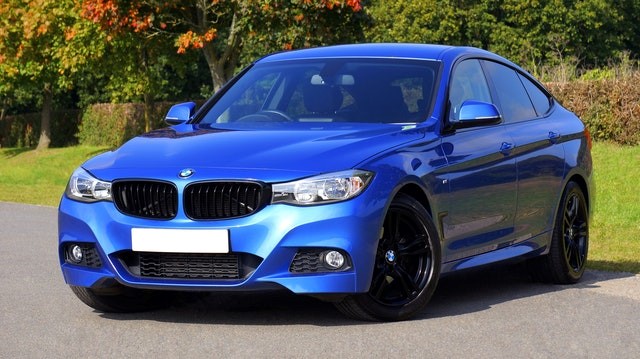The taxation of company vehicles is one of the most complex areas of tax and as a result one that we get asked about the most.
It is not helped by the fact that the rules are different depending upon how you use the vehicle, how your company provides it and whether it is a car a van or a bicycle!
So in this post, we are going to demystify the issue of company cars and let you know whether you will pay tax or not.
In this article;
- The wholly and necessary rule
- Company provided cars
- Company provided fuel
- Company provided vans
- Using your own car for company business
- Low-emission options
- Get on your bike!
The wholly and necessary rule
There’s an important rule to bear in mind when we are talking about company vehicles.
HMRC counts business use only when it is “wholly and necessary” for business purposes.
So this means that driving to and from your place of work doesn’t count as that is a private journey and dropping the kids to school before a business meeting isn’t wholly business use.
There’s no account taken of mileage here either. So even if you only live a mile away from work and drive in using your company vehicle, then that would be private use.
A pool car, that is available for everyone to use wouldn’t be classed as a company car and a vehicle that you leave at a depot at night before you travel home in your own car wouldn’t be taxable.
You can also reduce the tax payable on a company vehicle if it is only available to you for part of the year, or if you pay something towards its cost.
Company provided cars
Let’s start with arguably the most common situation; where the company provides its employee with a car to use both on company business and privately.
You’ll pay tax on the P11D value of the car that the company provides. Note that we use the phrase “P11D value” of the car. This is a value set by HMRC and is not the price you actually pay for the car in real life.
So if your company buys a second-hand car, you’ll still pay tax as though it was a new vehicle.
You will also pay more for diesel cars or less if you drive a low emission vehicle (see Low-emission options).
The value of your car is multiplied by the Benefit in Kind (BiK) rate that HMRC has set and your tax band. This then gives you the amount of tax you’ll pay.
So for example;
BMW 3 Series with a £30,000 P11d value and CO2 emissions of 105g/km
| P11D value | £30,000 |
| BIK rate | 25% |
| Benefit value | £7,500 (25% of £30,000) |
| Personal tax rate | 40% |
| Tax payable | £3,000 |
Using the example above, if you are a 20% taxpayer then your tax would be £1,500 per year and at 45% it would be £3,375.
HMRC has provided a useful car benefit calculator that you can access here to work out your tax cost of a company car.
Company provided fuel
If your company is generous enough to pay your fuel bill for private motoring, then you will also be taxed on this.
The amount of tax you pay is again based on the BiK rate of the car and your personal tax rate but instead of the P11d value of the car, it uses the HMRC car fuel multiplier (£24,600 for 2021/22).
This is a value that HMRC sets each year as a simple method of assessing the benefit of employer-provided fuel.
Using our BMW example above;
| Car fuel multiplier | £24,600 |
| Car BiK rate | 25% |
| Car fuel benefit amount | £6,150 |
| Personal tax rate | 40% |
| Annual tax charge | £2,460 |
For the 2022/23 tax year the multiplier will increase to £25,300 and the flat-rate van fuel benefit charge will increase to £688.
So as you can see here the taxpayer suffers a hefty charge for the use of employer-provided fuel regardless of the mileage they do.
There is one way around this and that is to reimburse your employer for the cost of private mileage. You’ll need to keep an accurate and detailed log of private journeys, but if you use less fuel than the cost of the tax payable then it is a worthwhile step.
Company provided vans
Vans are different to cars. We know that sounds pretty obvious but we are talking here about taxation.
Remember the wholly and necessary rule here. If you only ever use your van for business journeys then it is not taxable. HMRC does make the concession that insignificant use, like stopping off to buy a sandwich on your way to a job, is not classed as a private journey.
A company van is treated differently from a company car in that there is a standard flat rate for tax of £3,500 for the 2021/22 tax year.
This is then multiplied by your personal tax rate, so for a 20% taxpayer the tax suffered would be £700 per year.
In the same way, there is a flat rate for fuel benefit too. This is £669 for the 2021/22 tax year will increase to £688 in 2022/23.
Using your own car for company business
A quick note here on using your personal car for company business.
If you don’t do many miles at all then it may be better for you not to accept a company car.
You would then do business journeys in your own vehicle and charge the company mileage rate for the trip.
As long as you don’t charge more than the HMRC approved amount (currently 45p per mile for the first 10,000 miles) then you won’t get taxed on the payment.
Low-emission options
If need or want a company car then one useful option is to choose a low-emission vehicle.
For the 2021/22 tax year, all fully electric cars are eligible for a 1% BiK rate, rising to 2% for 2022/23.
This means that a Hyundai Kona electric with a P11d value of £33,125 would attract a taxable benefit of only £312.50!
Add to this the fact that employers are allowed to offer tax-free charging points then you can see that a low or zero-emission option may make a great deal of sense, especially if you work in a ULEZ zone.
Get on your bike!
You may not know this but your company can provide you with a free bike and you won’t pay tax on the benefit.
In fact, a company can provide two bikes per person which makes it especially useful if you commute using the train.
There are remarkably few rules to this. The company must make the scheme available to all employees (although they don’t all have to take it up) and they can’t gift the bike to the employee.
They can also provide safety equipment like lights and helmets and provide locks and secure parking.
The employee doesn’t even need to provide a log of their journeys and they can use the bike for private use at weekends or evenings as long as that isn’t the main purpose of the bike.
So if you don’t need a car for long journeys then maybe getting fit on a bike is an option!
Summary: it’s best to consider your options carefully
As you can see, there are many different options for company vehicles and for some taxpayers who don’t do a lot of mileage, a company car may not make sense at all.
We can see that cars are treated very differently to vans and if you do private mileage, in an expensive car then you get the double whammy of being taxed on the car and the fuel too.
As a way of reducing your tax bill, you could look at using a pool vehicle, paying something towards the cost of the car or selecting a low-emission option when you are choosing your next vehicle. You could even travel by bike!
If you’d like to talk more about your options, or you want to discuss how your company can best structure its employee travel, call us now and we’ll be glad to help.

